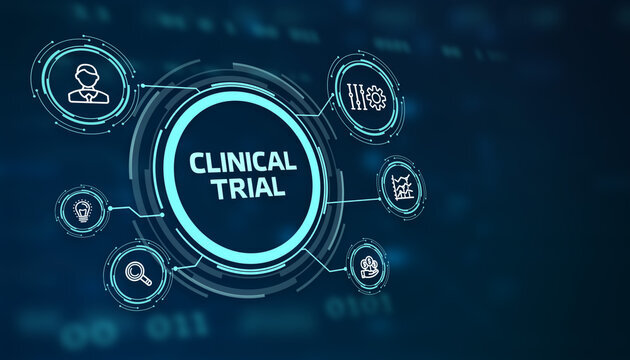Effective Clinical Trial Agreements: What You Need to Know
January 28, 2025
Clinical trial agreements (CTAs) form the foundation of any clinical research initiative, establishing the legal and operational framework essential for a study's success. Crafting, reviewing, and negotiating CTAs require meticulous attention to detail and strategic foresight. A well-drafted CTA, along with related study agreements, can significantly impact critical aspects of a trial, including study enrollment, data integrity, and protocol adherence, ultimately shaping the trial's overall outcomes.
Key Provisions in Clinical Trial Agreements
Certain terms in CTAs warrant extra scrutiny due to their potential to significantly impact research arrangements. For example, improperly structured publication rights can limit a sponsor’s ability to publish data or review a manuscript before publication. Similarly, changes to intellectual property (IP) provisions, such as disclosure, reporting, results, or ownership, can affect a manufacturer’s ability to safeguard its innovations. Indemnification clauses also frequently require negotiation to balance liability equitably between parties.
One of the most critical and often contentious sections in a CTA is subject injury. Sponsors must ensure their insurance carriers are fully informed of agreed terms to avoid unnecessary liability exposure. Poorly drafted subject injury clauses can lead to significant risks if exploited. Budgets are another frequent point of negotiation. It’s important to establish a clear basis for payments and remain prepared to walk away from unfavorable terms if necessary.
The following provisions often warrant the most attention during negotiations:
- Intellectual Property
- Indemnification
- Subject Injury
- Budget
- Publication Rights and Use
Engaging in live discussions to negotiate these terms can be especially effective. Picking up the phone to resolve redlines fosters collaboration, saves time, and often leads to quicker, more agreeable outcomes. The "human touch" of real-time negotiations can help build trust and drive progress with other research parties. Be patient when dealing with less experienced attorneys on the other side, as they are often tasked with negotiating on behalf of institutions. Adopting a conciliatory and educational tone when necessary can help align both parties toward the shared goal of advancing research objectives.
Risk Mitigation in CTAs
Clinical trials inherently involve complex legal and regulatory risks. Gardner Law helps sponsors identify and address these risks, ensuring agreements are comprehensive and compliant. Key risk areas include:
- Fraud and Abuse Risks: Ensuring compensation terms comply with the Anti-Kickback Statute (AKS) and False Claims Act (FCA).
- Data Privacy and Security: Developing robust data sharing and protection strategies to comply with HIPAA, GDPR, and state privacy laws.
- Regulatory Compliance: Navigating FDA and GCP requirements to reduce the risk of enforcement actions.
- Liability Exposure: Drafting indemnification and insurance clauses to minimize sponsor liability in the event of adverse events.
- Dispute Resolution: Structuring agreements to provide clear procedures for resolving disagreements or litigation.
Proactively addressing these challenges helps sponsors safeguard their investments, minimize legal exposure, and facilitate smooth trial execution. Brynn Stanley, Associate Attorney at Gardner Law, discusses the importance of a well-drafted CTA: “It is the cornerstone of a successful study, ensuring clarity, compliance, and mutual trust among stakeholders. By approaching contentious terms with creative problem-solving and focusing on practical, win-win solutions, we can help sponsors streamline the contracting process and set the foundation for efficient collaboration. Optimizing this process not only saves time and resources but also enables a sharper focus on driving innovation, advancing critical research, and improving patient outcomes."
Comprehensive Support for Clinical Research Contracts
Gardner Law provides sponsors with practical, strategic support at every stage of the clinical trial process. Our services include:
- Drafting, Reviewing, and Negotiating CTAs
Collaborating with sponsors to structure agreements that protect key interests and foster positive site relationships. - Preparing and Revising Informed Consent Forms (ICFs)
Ensuring ICFs are compliant, patient-focused, and aligned with FDA and GCP standards. - Structuring Facility Use Agreements
Assisting sponsors in creating agreements to manage site operations, resource allocation, and investigator responsibilities. - Developing Data Use Agreements
Addressing privacy, security, and data sharing to ensure compliance with HIPAA, GDPR, and other regulations. - Regulatory Compliance Guidance
Navigating federal and state regulatory frameworks, including FDA requirements, healthcare fraud and abuse laws, and GCP standards.
Contact Gardner Law
Gardner Law’s team of experienced attorneys is ready to help you navigate the complexities of clinical research contracting. With deep expertise and a practical approach, we provide tailored strategies to mitigate risks, ensure compliance, and protect your company’s interests. Contact us to learn how we can support your next research initiative.